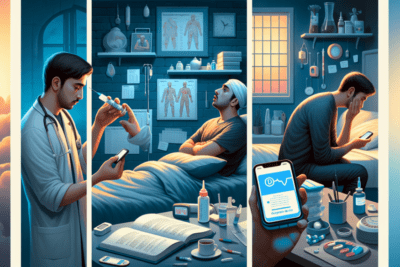
Understanding the relationship between alcohol and diabetes is vital for those managing their health with this condition. While moderate consumption can fit into a diabetic's lifestyle, there are important considerations to keep in mind.
The American Diabetes Association (ADA) offers guidance to help individuals with diabetes make informed choices about alcohol consumption. This article explores the nuances of drinking alcohol when managing diabetes.
What you\'ll find in this article?
- Is it safe to drink alcohol with diabetes?
- How much alcohol can I drink with diabetes?
- Alcohol and the risk of low blood sugar
- Are some alcoholic drinks better for diabetics?
- Can alcohol affect diabetes medications?
- Tips for safe alcohol consumption with diabetes
- Understanding Alcohol and Diabetes: Delving into ADA's Recommendations
Is it safe to drink alcohol with diabetes?
Drinking alcohol with diabetes can be safe, but it requires careful management and moderation. The ADA suggests that individuals with diabetes can enjoy alcohol in moderation but should do so with an awareness of the potential impact on blood glucose levels.
It's crucial to understand that alcohol can cause both hyperglycemia (high blood sugar) and hypoglycemia (low blood sugar), depending on the amount consumed and if it's taken with food. Therefore, monitoring blood sugar levels when drinking is essential.
Moreover, the effects of alcohol can interfere with the signals of low blood sugar, which can be particularly dangerous for those on insulin or other medications that increase insulin production.












How much alcohol can I drink with diabetes?
Alcohol consumption guidelines for diabetics suggest moderation. For women, this means up to one drink per day, and for men, up to two drinks per day. A standard drink is generally considered to be 12 ounces of beer, 5 ounces of wine, or 1.5 ounces of distilled spirits.
The ADA emphasizes the importance of factoring in the carbohydrate content of drinks when calculating daily intake, and not using alcohol to replace food in a diet plan.
Keep in mind that excessive drinking can have the opposite effect by causing prolonged high blood sugar levels. Therefore, understanding one's own body's response to alcohol is fundamental in managing diabetes effectively.
Alcohol and the risk of low blood sugar
Alcohol can significantly reduce the body's ability to raise blood glucose levels, leading to hypoglycemia for up to 24 hours after drinking. This is particularly concerning for those who use insulin or other glucose-lowering medications.
It is advised that individuals with diabetes check their blood glucose before drinking, while drinking, and for up to 24 hours after drinking. If planning to have an alcoholic beverage, it is safer to consume it with food to help mitigate the risk of low blood sugar.
Wearing a medical ID that notes one has diabetes is also recommended, so that in case of an emergency, others will understand that they may need to check blood sugar levels.
Are some alcoholic drinks better for diabetics?
Safe alcoholic drinks for diabetics are generally those with lower sugar and carbohydrate content. Dry wines and light beers are often considered better options as they have fewer carbohydrates.
Mixed drinks that include sugary sodas or juices can lead to higher blood sugar levels and should be consumed with caution. Choosing mixers like diet soda, water, or ice can help minimize carbohydrate intake.
Furthermore, it's recommended to avoid "sugar-free" mixers that are still high in alcohol content, as these can still affect blood sugar levels significantly.
Can alcohol affect diabetes medications?
Alcohol can interact with diabetes medications, leading to potential health risks. For example, certain medications combined with alcohol can increase the risk of liver damage or enhance the hypoglycemic effects of insulin.
Before consuming alcohol, it's important to consult a healthcare provider concerning how alcohol may interact with specific diabetes medications being taken.
Individuals should also be aware of the symptoms of both high and low blood sugar and be prepared to take appropriate action, especially when trying a new drink or if their medication regimen has changed.
Tips for safe alcohol consumption with diabetes
- Always have a meal or snack with carbohydrates when drinking to prevent low blood sugar.
- Monitor blood glucose levels before, during, and after drinking.
- Stay hydrated by drinking water alongside alcoholic beverages.
- Be cautious with mixed drinks as they can be high in sugar and calories.
- Teach friends or family to recognize signs of hypoglycemia to ensure safety.
To further illustrate, here is a video from the ADA that discusses alcohol consumption for those with diabetes:
Understanding Alcohol and Diabetes: Delving into ADA's Recommendations
What alcohol is ok for diabetics?
For diabetics, the best choices are those with lower sugar and carbohydrate content. Dry wines, light beer, and spirits with calorie-free mixers are considered safer options. It's important to read labels and be aware of serving sizes.
Consulting a healthcare provider for personalized advice is always a good idea, especially because individual responses to alcohol can vary based on the type and amount of diabetes medication being taken.
What three drinks should diabetics avoid?
Diabetics should typically avoid sugary mixed drinks, sweet wines, and heavy craft beers. These can spike blood sugar levels due to their high carbohydrate and sugar content.
It's also wise to steer clear of cocktails with high-fat cream-based liquors, which can lead to weight gain, a risk factor for worsening diabetes.
Does quitting alcohol lower blood sugar?
Quitting alcohol may help stabilize blood sugar levels, as alcohol can interfere with blood glucose management. It can also contribute to better caloric control and reduce the risk of liver disease, which can complicate diabetes management.
However, it's essential for individuals to discuss the potential benefits and risks of quitting alcohol with their healthcare provider, as sudden changes can affect diabetes management plans.
Does alcohol spike insulin?
Alcohol does not necessarily spike insulin. In fact, it can inhibit the liver's ability to release glucose, potentially leading to hypoglycemia. Each individual's response may vary, and continuous monitoring is key.
Understanding how your own body reacts to alcohol is essential for maintaining control over your diabetes and health.












